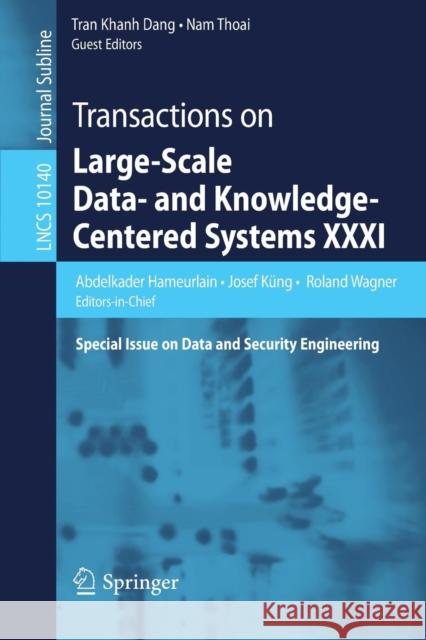Transactions on Large-Scale Data- And Knowledge-Centered Systems XXXI: Special Issue on Data and Security Engineering » książka
topmenu
Transactions on Large-Scale Data- And Knowledge-Centered Systems XXXI: Special Issue on Data and Security Engineering
ISBN-13: 9783662541722 / Angielski / Miękka / 2016 / 147 str.
Transactions on Large-Scale Data- And Knowledge-Centered Systems XXXI: Special Issue on Data and Security Engineering
ISBN-13: 9783662541722 / Angielski / Miękka / 2016 / 147 str.
cena 201,24
(netto: 191,66 VAT: 5%)
Najniższa cena z 30 dni: 192,74
(netto: 191,66 VAT: 5%)
Najniższa cena z 30 dni: 192,74
Termin realizacji zamówienia:
ok. 16-18 dni roboczych.
ok. 16-18 dni roboczych.
Darmowa dostawa!
Kategorie:
Kategorie BISAC:
Wydawca:
Springer
Seria wydawnicza:
Język:
Angielski
ISBN-13:
9783662541722
Rok wydania:
2016
Wydanie:
2017
Numer serii:
000013115
Ilość stron:
147
Waga:
0.23 kg
Wymiary:
23.39 x 15.6 x 0.86
Oprawa:
Miękka
Wolumenów:
01
Dodatkowe informacje:
Wydanie ilustrowane











